Films from the country "espagne", sorted by revenue

Boris Godunov (1989)
, 1h55Directed by Andrzej Żuławski
Origin Espagne
Genres Drama, Historical, Musical
Themes Films about music and musicians, Musical films, Films based on operas
Actors Ruggero Raimondi, Delphine Forest, Anne-Marie Pisani, Galina Vishnevskaya
Chamberlain of Ivan the Terrible, Boris Godounov is after the Tsar's death regent of Feodor I, before becoming the Tsar of Russia himself.
 , 1h50
, 1h50Directed by José Luis Cuerda
Origin Espagne
Genres Comedy
Actors Antonio Resines, José Sazatornil, Manuel Alexandre, Luis Ciges, Aurora Bautista, Gabino Diego
Il s'agit d'un film choral à l'humour absurde dont le scénario est teinté de surréalisme. Les situations alternent entre le naïf et le grotesque. L'action se situe dans un village près d'Albacete.

El Dorado (1988)
, 2h29Directed by Carlos Saura
Origin Espagne
Genres Drama, Adventure, Historical
Actors Omero Antonutti, Lambert Wilson, Inés Sastre, Gabriela Roel, José Sancho or Pepe Sancho, Francisco Algora
The film is about an expedition down the Amazon and Orinoco rivers in 1560 by Spanish soldiers searching for the fabled city of gold, El Dorado. Taking some followers and family along on the journey, they descend into madness and battle the environment and each other.
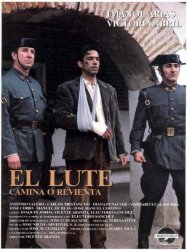
Lute: Forge On or Die (1987)
, 2h3Directed by Vicente Aranda
Origin Espagne
Genres Drama, Biography
Actors Imanol Arias, Victoria Abril, Antonio Valero, Manuel de Blas, Luis Barbero, José Vivó
In Spain of the 1960s, a poor family of quinquis (mercheros), a nomadic ethnic group with a tradition as old as that of the gitanos (gypsies) of Spain and of obscure origins, live as poor nomads. They craft tin goods and repair metal. The son, Eleuterio Sánchez Rodriguez, nicknamed "El Lute", steals some chickens and is condemned to six months in jail.

Course Completed (1987)
, 1h34Directed by José Luis Garci
Origin Espagne
Genres Drama, Thriller
Actors Jesús Puente, Teresa Gimpera Flaquer, Pedro Lazaga
Modèle:No plot
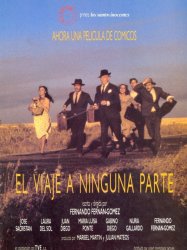
Voyage to Nowhere (1986)
, 2h14Directed by Fernando Fernán Gómez
Origin Espagne
Genres Drama, Comedy, Comedy-drama
Actors José Sacristán, Gabino Diego, Laura del Sol, María Luisa Ponte, Fernando Fernán Gómez, Emma Cohen
The film tells the story of a group of comedians. It is a story about their loves and heartbreaks and their desires and frustrations.

El Amor brujo (1986)
, 1h40Directed by Carlos Saura
Origin Espagne
Genres Drama, Musical, Romance
Themes Dance films, Musical films
Actors Cristina Hoyos, Laura del Sol, Emma Penella, Rocío Jurado
Candela, who is loved by Carmelo, marries José in a pre-arranged marriage decided by their respective fathers. José is in love with the flirtatious Lucía and dies defending her honor. Carmelo is mistakenly arrested for the killing, and spends several years in prison. After being released, he declares his love for Candela.
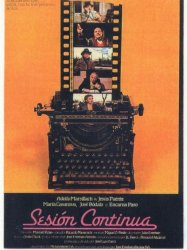
Double Feature (1984)
, 1h55Directed by José Luis Garci
Origin Espagne
Genres Drama
Actors Adolfo Marsillach, Emma Suárez, Encarna Paso, Jesús Puente, José Bódalo, Rafael Hernández
The friendship between two writers, one is a novelist, the other is a screenwriter.

Fanny Straw-Top (1984)
, 1h40Directed by Vicente Aranda
Origin Espagne
Genres Crime
Actors Fanny Cottençon, Bruno Cremer, Francisco Algora
Estefania Sánchez, known as Fanny Pelopaja for her bleach blond hair, is a cold-blooded woman who recently has been released from jail after serving a three-year sentence. She has built up a new life for herself working in a gas station. However, she has been waiting all this time to take revenge from a corrupt and brutal police officer, Andrés Gallego. A phone call from one of her old cronies informs her that Andrés is working in Barcelona as a security guard for an armored car company. Fanny leaves everything behind and takes the road back to Barcelona.
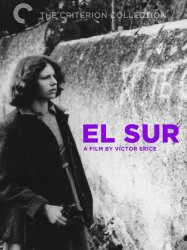
El Sur (1983)
, 1h33Directed by Victor Erice
Origin Espagne
Genres Drama, Romance
Actors Omero Antonutti, Icíar Bollaín, Aurore Clément, Lola Cardona, Rafaela Aparicio, Germaine Montero
This film tells the story of a little girl (Sonsoles Aranguren) living somewhere in the north of Spain and fascinated by the secrets of the south seemingly buried in the traits of her father (Omero Antonutti). In her childhood, Estrella's father is a mysterious world. Growing up, she finds out that he once had a sweetheart (Aurore Clément), and that he's still in love with her.
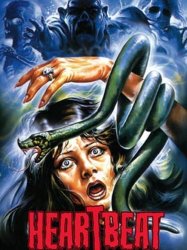
Heartbeat (1983)
, 1h34Directed by Paul Naschy
Origin Espagne
Genres Horror
Actors Paul Naschy, Julia Saly, Frances Ondiviela, Lola Gaos, Manuel Zarzo, José Vivó
Paul Marnac (Paul Naschy) and his infirm wife Geneviève (Julia Saly) move to his childhood estate in the French countryside. The estate is also the site of the castle inhabited by Paul's ancestor Alaric de Marnac, who was known for brutally slaughtering anyone whom he suspected of infidelity. There is a legend that Alaric rises from the grave to continue his deeds. The estate is currently inhabited by Paul's aunt Maville (Lola Gaos) and cousin Julie (Frances Ondiviela, billed as Pat Ondiviela). Right after Paul and Geneviève arrive, mysterious things begin to happen. Geneviève begins to wonder if the legend about Alaric is true.
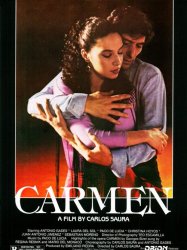
Carmen (1983)
, 1h42Directed by Carlos Saura
Origin Espagne
Genres Drama, Musical theatre, Musical, Romance
Themes Dance films, Films about music and musicians, Musical films, Films based on operas
Actors Laura del Sol, Marisol, Cristina Hoyos
Un groupe de danseurs de flamenco met en scène une version très hispanisée de l'œuvre de Prosper Mérimée. Durant les préparations et l'exécution de l'œuvre, Antonio, le chorégraphe, tombe amoureux de Carmen qui en est la danseuse principale. L'œuvre dansée et la vie réelle commencent alors à se mêler.

Sweet Hours (1982)
, 1h46Directed by Carlos Saura
Origin Espagne
Genres Drama
Actors Assumpta Serna, Álvaro de Luna, Jacques Lalande, Isabel Mestres, Julien Thomast, Marion Game
The past is a riddle to Juan (Inaki Aierra), the playwright. He is tormented by it - by memories of the elderly father who went off, and the young mother who committed suicide, and he has written a play, Sweet Hours, which contains the key scenes of his early life. The play is in rehearsal and he attends the sessions, watchful and absorbed. He is searching for something. Juan slips in and out of the actor reconstructions and his own memories. Finally, light dawns on Juan, he dredges up the repressed material, and his Oedipus Complex is resolved.
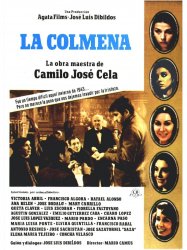
The Beehive (1982)
, 1h52Directed by Mario Camus
Origin Espagne
Genres Drama, Comedy
Themes Political films
Actors Victoria Abril, Ana Belén, Charo López, Concha Velasco, Francisco Algora, Rafael Alonso
The film is set in Madrid during the postwar period, beginning in 1942. The population suffers the consequences of the civil war. A group of members of a social gathering meet every day in the café La Delicia.
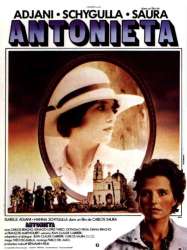
Antonieta (1982)
, 1h48Directed by Carlos Saura
Origin Espagne
Genres Drama, War, Biography
Themes Films about writers
Actors Isabelle Adjani, Hanna Schygulla, Ignacio López Tarso, Carlos Bracho, Gonzalo Vega, Héctor Alterio
Anna, a modern day Parisian psychologist, is researching the cases of women who committed suicide in the 20th Century. She becomes fascinated by the story of Antonieta Rivas Mercado, a Mexican writer and social activist who committed suicide inside Notre Dame Cathedral in Paris. To find more about Antonieta's story, Anna travels to Mexico and interviews people who knew her. She receives her first clues about Antonieta's life from Juana, a Mexican librarian who frames the live of Antonieta Rivas Mercado within a stormy period of Mexico's history, the political turmoil of the 1910s-1920s.
 Connection
Connection